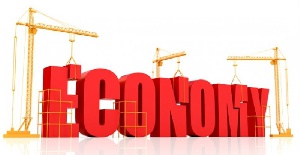The Economist Intelligence Unit (EIU), a UK-based leading provider of country, industry and management analysis, has forecast a 7 percent growth for Ghana’s economy next year.
In its latest review of economies on the African continent, chief economist Simon Baptist indicated that “While Nigeria and South Africa – by far the two biggest economies – will continue to keep the average GDP growth down to a moderate 2.6 percent; there are a number of stars. Economies such as Cote d’Ivoire, Tanzania, Kenya and Rwanda all feature in our predicted list of the 20 fastest growing economies in 2017. Another in that list is Ghana, which should grow by 7 percent in 2017 due to rising oil and gas production and a boost to the industrial sector from increasing electricity generation.”
The EIU said five years ago, there was a lot of optimism around Africa’s apparent economic revival, but the end of the commodities boom put an end to the hope that this was an inevitable trend.
“This year sub-Saharan Africa’s GDP growth rate will be even lower than that of the beleaguered Eurozone, a shocking out-turn given the catch-up potential, and of course, a tragedy for many Africans. We are hopeful, however, that 2017 is going to be slightly better. This is partly due to rises in many commodity prices, but also continued gains in some of the region’s smaller economies.”
Some statistics
According to the Ghana Statistical Service (GSS), in the second quarter of 2016, GDP expanded by 2.5 percent over the same quarter of 2015.
It said the figure marked a considerable slowdown over the revised 4.8 percent growth observed in first quarter (previously reported: +4.1 percent) and marked the lowest expansion in eight quarters.
It continued that the second quarter’s deceleration was mainly driven by a sharp drop in the industrial sector which more than offset the expansion in both the agriculture and services sectors.
“The industrial sector swung from a 1.4 percent annual expansion in first quarter to a 5.0 percent contraction in second quarter, marking the lowest reading since fourth quarter of 2007. Growth in the services sector slowed from 7.1 percent in first quarter to 6.0 percent in the second quarter. On a positive note, the agricultural sector expanded at its fastest pace in six quarters, picking up from a 3.5 percent increase in first quarter to a 4.1 percent expansion in the second quarter.”
BoG’s assessment
The Central Bank reported that growth had remained subdued for the most part of 2016 largely due to tight credit conditions and the downturn in commodity prices.
“Growth conditions remain weak and below trend. This is underpinned by weak global demand, declining commodity prices and disruptions in the production of oil and gas. Other factors include weak private sector credit growth as a result of the tight credit stance and fiscal consolidation efforts. These tight conditions are expected to prevail in the outlook.”
Macroeconomic targets
The outgoing administration expected to meet certain macroeconomic targets including an overall real GDP (including oil) growth of 5.4 percent; non-oil real GDP growth of 5.2 percent; an end-year inflation target of 10.1 percent; an overall budget deficit equivalent to 5.3 percent of GDP; and gross international reserves of not less than three months of import cover of goods and services. But most of the targets appeared to have been missed.
New administration’s daunting task
One of President-elect Nana Akufo-Addo’s policy priorities will be to speed up the process of industrialisation, which is expected to open up opportunities for the private sector and foreign investors.
The EIU has indicated however that “a tight fiscal picture will restrain some of his more grandiose ambitions such as building hundreds of new factories. Meanwhile, new oil and gas output will support gradually improving economic prospects in the coming year and beyond.”
“Other policy priorities will be the NPP’s much-heralded industrialisation agenda. It is ambitious and the NPP has been emphasizing the role the private sector will play. Therefore businesses will be eyeing early moves to ease taxes and regulations, and the IMF will be looking at least for a continuation, or even a tightening of fiscal discipline.
“Meeting campaign pledges while observing IMF targets will be a challenge, and we expect the early balance to come down in favour of the former. The NPP will argue that it was its predecessors and not it that agreed to the fiscal targets with the IMF. However, we think that it will be pragmatic enough to recognise the benefit of IMF approval in terms of lower borrowing rates and higher investor interest in the local market, so we do not expect any breakdown in relations with the Fund,” it added.
Business News of Friday, 16 December 2016
Source: Daily Guide













